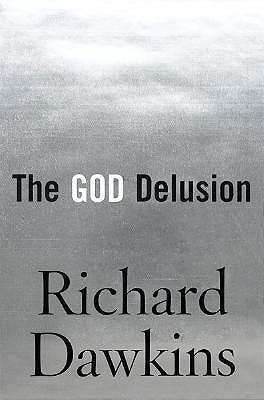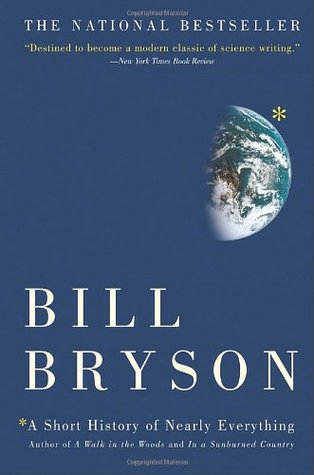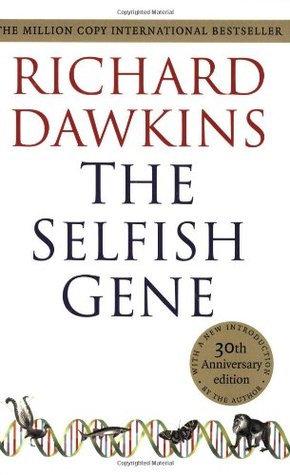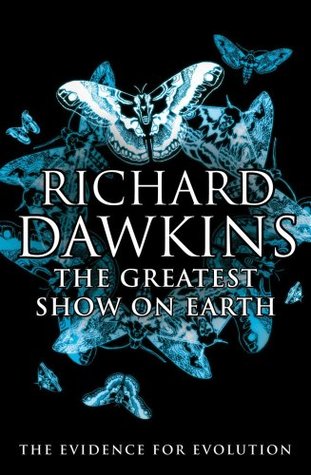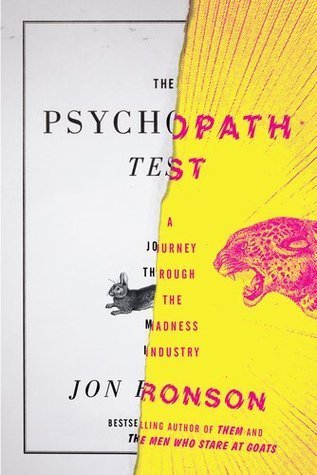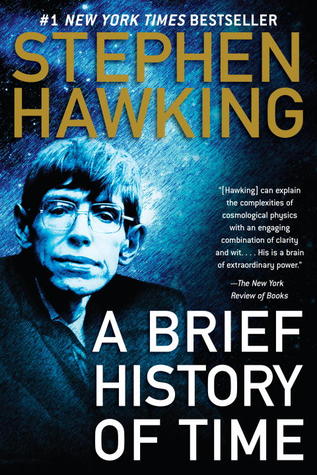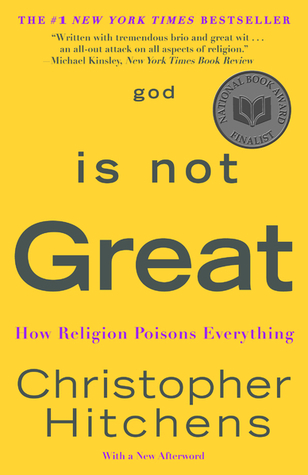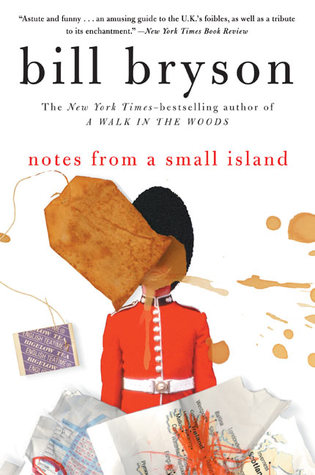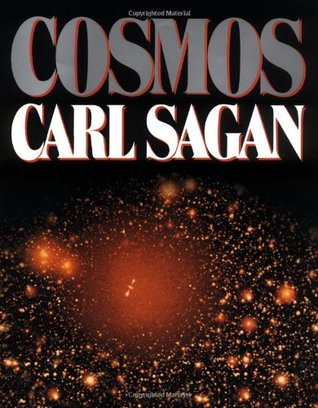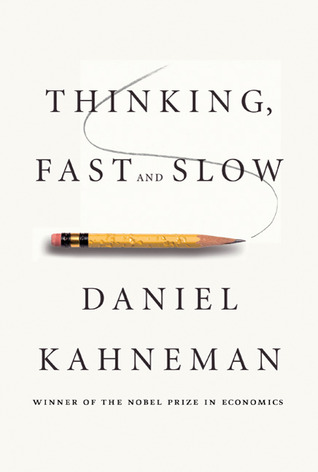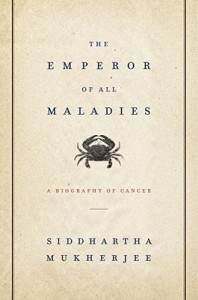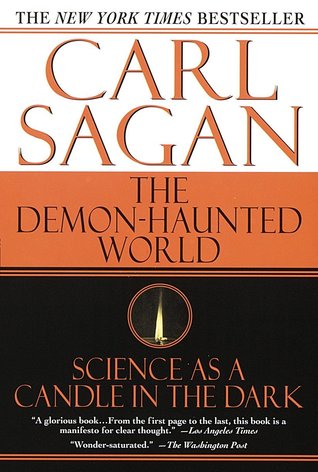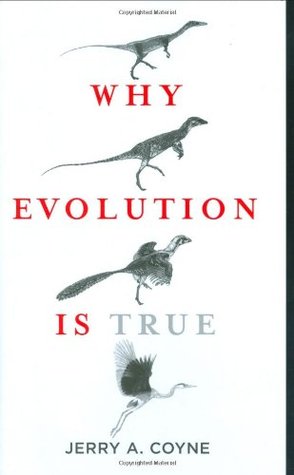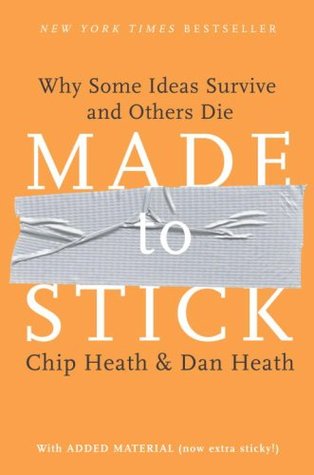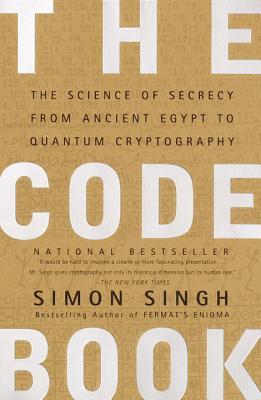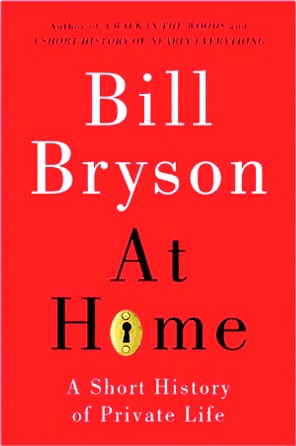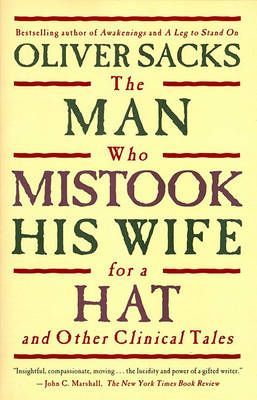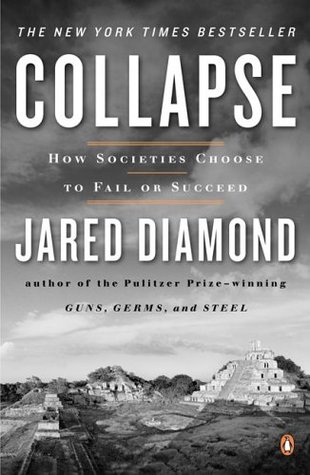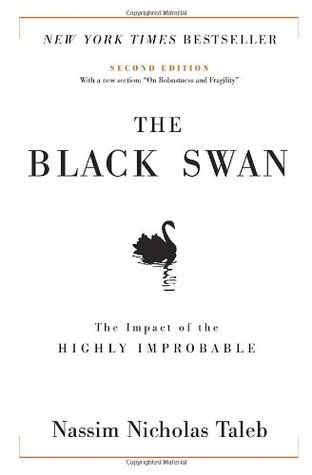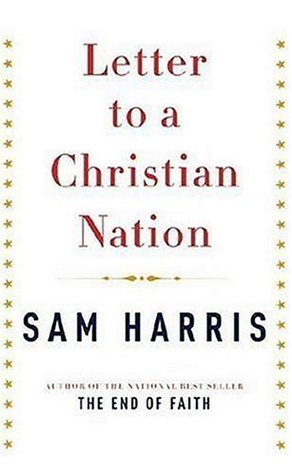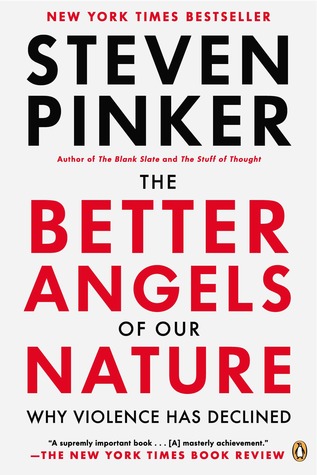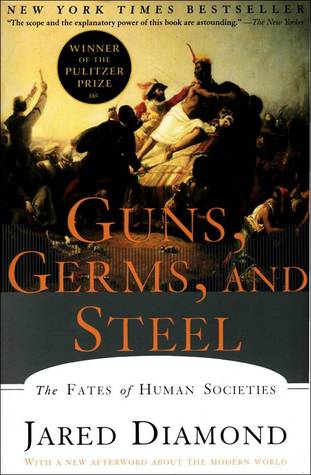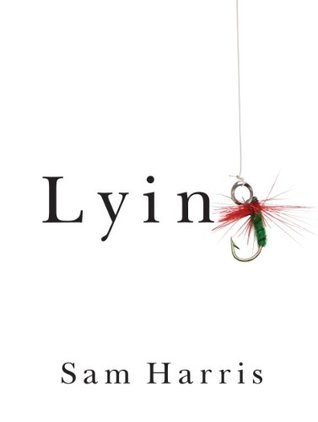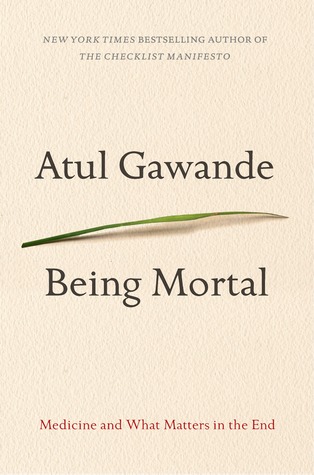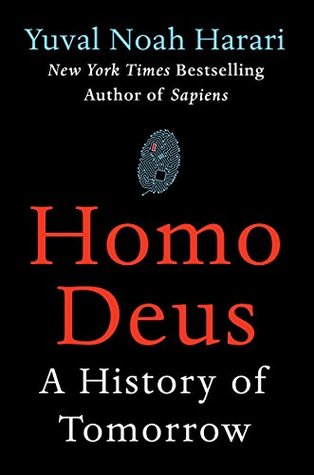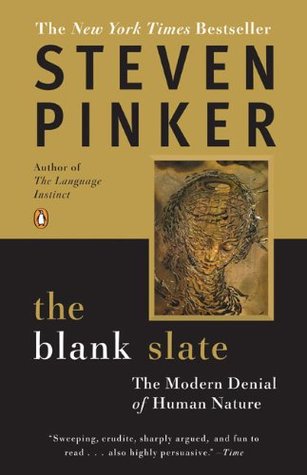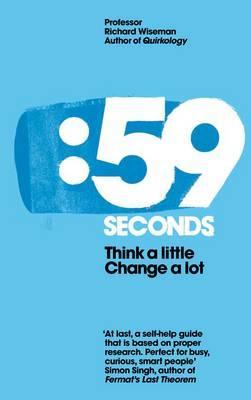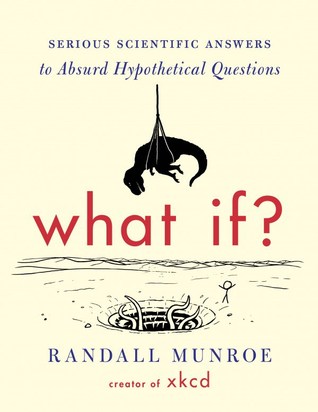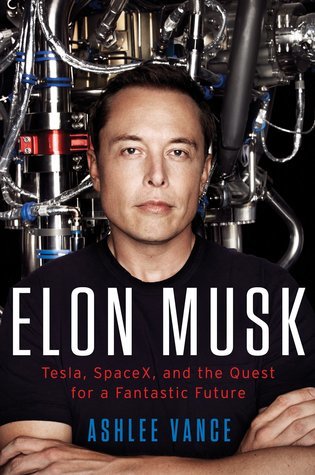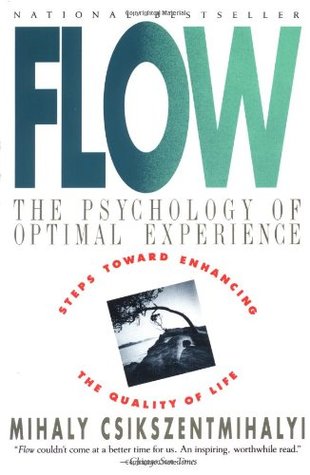Powered by a book like {foo}
Recommendations based on Bad Scienceby Ben Goldacre
* statistically, based on millions of data-points provided by fellow humans
The God Delusion
by Richard Dawkins
Scientific exploration of the evidence for and against religious belief.
A preeminent scientist - and the world's most prominent atheist - asserts the irrationality of belief in God, and the grievous harm religion has inflicted on society, from the Crusades to 9/11. With ... (Goodreads)
A Short History of Nearly Everything
by Bill Bryson
A captivating overview of the natural sciences, spanning the history of the universe.
In Bryson's biggest book, he confronts his greatest challenge: to understand—and, if possible, answer—the oldest, biggest questions we have posed about the universe and ourselves. Taking as territory ... (Goodreads)
The Selfish Gene
by Richard Dawkins
A study of evolutionary biology, exploring how genes act and how they impact behavior.
Inheriting the mantle of revolutionary biologist from Darwin, Watson, and Crick, Richard Dawkins forced an enormous change in the way we see ourselves and the world with the publication of The ... (Goodreads)
The Greatest Show on Earth: The Evidence for Evolution
by Richard Dawkins
An exploration of the evidence and science of evolution, highlighting its importance in understanding the history of life on Earth.
Charles Darwin’s masterpiece, On the Origin of Species , shook society to its core on publication in 1859. Darwin was only too aware of the storm his theory of evolution would provoke but he would ... (Goodreads)
The Psychopath Test: A Journey Through the Madness Industry
by Jon Ronson
Exploration of the psychiatric industry, examining the definition and diagnosis of psychopathy.
In this madcap journey, a bestselling journalist investigates psychopaths and the industry of doctors, scientists, and everyone else who studies them. The Psychopath Test is a fascinating journey ... (Goodreads)
A Brief History of Time
by Stephen Hawking
Exploring the depths of time and space and the emergence of the universe.
In the ten years since its publication in 1988, Stephen Hawking's classic work has become a landmark volume in scientific writing, with more than nine million copies in forty languages sold ... (Goodreads)
God Is Not Great: How Religion Poisons Everything
by Christopher Hitchens
Criticism of organized religion, arguing it is the root of much suffering in the world.
With his unique brand of erudition and wit, Hitchens describes the ways in which religion is man-made. "God did not make us," he says. "We made God." He explains the ways in which religion is ... (Goodreads)
Notes from a Small Island
by Bill Bryson
A humorous travelogue of Bryson's final tour of Britain before moving to the US. He reflects on the quirks and charms of British life.
"Suddenly, in the space of a moment, I realized what it was that I loved about Britain-which is to say, all of it." After nearly two decades spent on British soil, Bill Bryson - bestselling author of ... (Goodreads)
Cosmos
by Carl Sagan
Voyage through the vastness of space, unlocking the mysteries of the universe.
Cosmos has 13 heavily illustrated chapters, corresponding to the 13 episodes of the Cosmos television series. In the book, Sagan explores 15 billion years of cosmic evolution and the development of ... (Goodreads)
Thinking, Fast and Slow
by Daniel Kahneman
An exploration of the two systems of the mind, and how they influence decision-making.
In the highly anticipated Thinking, Fast and Slow , Kahneman takes us on a groundbreaking tour of the mind and explains the two systems that drive the way we think. System 1 is fast, intuitive, and ... (Goodreads)
The Emperor of All Maladies: A Biography of Cancer
by Siddhartha Mukherjee
A comprehensive account of the history and science of cancer, from its origins to modern treatments.
An alternative cover edition for this ISBN can be found, here, and, here,. The Emperor of All Maladies is a magnificent, profoundly humane “biography” of cancer - from its first documented ... (Goodreads)
The Demon-Haunted World: Science as a Candle in the Dark
by Carl Sagan
A critical look at superstition and pseudoscience, advocating for the power of science and reason.
How can we make intelligent decisions about our increasingly technology-driven lives if we don’t understand the difference between the myths of pseudoscience and the testable hypotheses of science? ... (Goodreads)
Why Evolution Is True
by Jerry A. Coyne
Comprehensive exploration of the evidence for evolutionary biology.
Why evolution is more than just a theory: it is a fact. In all the current highly publicized debates about creationism and its descendant "intelligent design," there is an element of the controversy ... (Goodreads)
Made to Stick: Why Some Ideas Survive and Others Die
by Chip Heath
Exploring why certain ideas are remembered and others are forgotten, focusing on practical ways to make ideas ‘stick’.
NEW YORK TIMES, BESTSELLER - The instant classic about why some ideas thrive, why others die, and how to improve your idea's chances–essential reading in the "fake news" era. Mark Twain once ... (Goodreads)
The Code Book: The Science of Secrecy from Ancient Egypt to Quantum Cryptography
by Simon Singh
A comprehensive history of cryptography and its role in shaping our world.
In his first book since the bestselling Fermat’s Enigma , Simon Singh offers the first sweeping history of encryption, tracing its evolution and revealing the dramatic effects codes have had on wars, ... (Goodreads)
At Home: A Short History of Private Life
by Bill Bryson
An exploration of the extraordinary and often overlooked history of the home.
“Houses aren’t refuges from history. They are where history ends up.” Bill Bryson and his family live in a Victorian parsonage in a part of England where nothing of any great significance has ... (Goodreads)
The Man Who Mistook His Wife for a Hat and Other Clinical Tales
by Oliver Sacks
A collection of case studies, illustrating extraordinary neurological phenomena.
If a man has lost a leg or an eye, he knows he has lost a leg or an eye; but if he has lost a self—himself—he cannot know it, because he is no longer there to know it. Dr. Oliver Sacks recounts the ... (Goodreads)
Collapse: How Societies Choose to Fail or Succeed
by Jared Diamond
Study of past societies' successes and failures in terms of environmental, economic, and political decisions.
Brilliant, illuminating, and immensely absorbing, Collapse is destined to take its place as one of the essential books of our time, raising the urgent question: How can our world best avoid ... (Goodreads)
The Black Swan: The Impact of the Highly Improbable
by Nassim Nicholas Taleb
A study of the role of randomness in life, and how it can lead to unexpected events.
A black swan is a highly improbable event with three principal characteristics: It is unpredictable; it carries a massive impact; and, after the fact, we concoct an explanation that makes it appear ... (Goodreads)
Letter to a Christian Nation
by Sam Harris
A refutation of religious dogma and an argument for the supremacy of reason.
In response to The End of Faith , Sam Harris received thousands of letters from Christians excoriating him for not believing in God. Letter to A Christian Nation is his reply. Using rational ... (Goodreads)
The Better Angels of Our Nature: Why Violence Has Declined
by Steven Pinker
Investigation into the causes of violence and the reasons why it has decreased in modern society.
Believe it or not, today we may be living in the most peaceful moment in our species' existence. In his gripping and controversial new work, New York Times bestselling author Steven Pinker shows that ... (Goodreads)
Guns, Germs, and Steel: The Fates of Human Societies
by Jared Diamond
Tracing the origins of human civilizations through the lens of geography, technology, and biology.
"Diamond has written a book of remarkable scope ... one of the most important and readable works on the human past published in recent years." Winner of the Pulitzer Prize and a national bestseller: ... (Goodreads)
Lying
by Sam Harris
Examination of the morality of deception, exploring its implications in modern society.
As it was in Anna Karenina, Madame Bovary, and Othello, so it is in life. Most forms of private vice and public evil are kindled and sustained by lies. Acts of adultery and other personal betrayals, ... (Goodreads)
Being Mortal: Medicine and What Matters in the End
by Atul Gawande
An exploration of the human experience of mortality and the importance of end-of-life care.
In, Being Mortal, author Atul Gawande tackles the hardest challenge of his profession: how medicine can not only improve life but also the process of its ending Medicine has triumphed in modern ... (Goodreads)
Homo Deus: A History of Tomorrow
by Yuval Noah Harari
An exploration of humanity's future, and the potential paths of our species.
Yuval Noah Harari, author of the critically-acclaimed, New York Times, bestseller and international phenomenon, Sapiens, returns with an equally original, compelling, and provocative book, turning ... (Goodreads)
The Blank Slate: The Modern Denial of Human Nature
by Steven Pinker
The exploration of the science of human nature, including the implications for society.
In The Blank Slate , Steven Pinker explores the idea of human nature and its moral, emotional, and political colorings. He shows how many intellectuals have denied the existence of human nature by ... (Goodreads)
59 Seconds: Think a Little, Change a Lot
by Richard Wiseman
Evidence-based self-help book that provides practical tips to improve various aspects of life in under a minute.
In "59 Seconds," psychologist Professor Richard Wiseman presents a fresh approach to change that helps people achieve their aims and ambitions in minutes, not months. From mood to memory, persuasion ... (Goodreads)
What If? Serious Scientific Answers to Absurd Hypothetical Questions
by Randall Munroe
A humorous exploration of science, tackling the most bizarre questions with real-world scenarios.
Randall Munroe left NASA in 2005 to start up his hugely popular site XKCD 'a web comic of romance, sarcasm, math and language' which offers a witty take on the world of science and geeks. It now has ... (Goodreads)
Elon Musk: Tesla, SpaceX, and the Quest for a Fantastic Future
by Ashlee Vance
A revealing look into the life and accomplishments of tech innovator Elon Musk.
Elon Musk, the entrepreneur and innovator behind SpaceX, Tesla, and SolarCity, sold one of his internet companies, PayPal, for $1.5 billion. Ashlee Vance captures the full spectacle and arc of the ... (Goodreads)
Flow: The Psychology of Optimal Experience
by Mihaly Csikszentmihalyi
An exploration of the concept of 'flow' and how it can be used to enhance optimal experience.
Psychologist Mihaly Csikszentmihalyi's investigations of "optimal experience" have revealed that what makes an experience genuinely satisfying is a state of consciousness called flow. During flow, ... (Goodreads)
